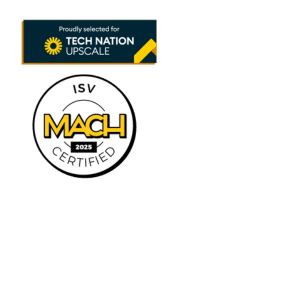What is Marketing Copy?
Marketing copy refers to persuasive text used to promote products, services, or brands to target audiences. It aims to capture attention, generate interest, and motivate potential customers to take a desired action, such as making a purchase or signing up for a service.
In-Depth Explanation of Marketing Copy
Why It Matters
Effective marketing copy is crucial for businesses to communicate their value proposition and differentiate themselves from competitors. It serves as a bridge between the company and its target audience, helping to build brand awareness, generate leads, and drive sales. Well-crafted marketing copy can significantly impact consumer behavior and ultimately contribute to a company’s bottom line.
How It Works
Marketing copy is carefully crafted to appeal to the target audience’s needs, desires, and pain points. It often follows a structured approach, such as the AIDA model (Attention, Interest, Desire, Action), to guide readers through the decision-making process. Copywriters use various techniques, including storytelling, emotional triggers, and persuasive language, to create compelling content that resonates with potential customers.
Key Benefits
Strong marketing copy can increase brand recognition, improve customer engagement, and boost conversion rates. It helps establish trust and credibility with potential customers by clearly communicating the unique selling points of a product or service. Effective copy can also enhance search engine optimization efforts, making it easier for businesses to reach their target audience online.
Importance of Marketing Copy
Marketing copy plays a crucial role in the success of businesses, especially those in product data management and eCommerce. It serves as the voice of a company, communicating the value and benefits of products or services to potential customers. Well-crafted marketing copy can captivate audiences, spark interest, and ultimately drive sales. In the digital age, where attention spans are short and competition is fierce, effective marketing copy can make the difference between a successful campaign and one that falls flat.
For businesses in product data management and ecommerce, marketing copy is particularly important because it often serves as the primary point of contact between the company and its customers. In these industries, products are typically sold online, making it essential to convey their features, benefits, and unique selling points through compelling written content. Strong marketing copy can help businesses stand out in crowded marketplaces, differentiate themselves from competitors, and create a lasting impression on potential buyers. It can also help overcome the lack of physical interaction with products, providing customers with the information they need to make informed purchasing decisions.
Furthermore, marketing copy plays a vital role in search engine optimization (SEO) and online visibility. By incorporating relevant keywords and phrases into product descriptions, website content, and promotional materials, businesses can improve their search engine rankings and attract more potential customers. This is especially important for eCommerce companies, as higher search rankings can lead to increased traffic and sales. Additionally, well-written marketing copy can help build brand identity and establish a consistent tone of voice across all marketing channels, fostering trust and loyalty among customers. In today’s competitive business landscape, investing in high-quality marketing copy is not just beneficial it’s essential for long-term success and growth.
Related Terms
Examples of Marketing Copy
Fashion/Apparel Retailer:
In the realm of fashion and apparel retail, marketing copy is pivotal in conveying brand ethos and engaging potential customers. Consider a luxury clothing retailer launching a fall collection. The copy might emphasize the collection’s unique blend of traditional craftsmanship and modern design, appealing to an audience that values both style and substance. Descriptive language in product descriptions, like “This exquisite cashmere blend sweater, inspired by timeless elegance, offers unparalleled comfort and warmth,” works to invoke desires and emotions, leading the customer from mere browsing to purchasing.
HVAC Manufacturer:
For an HVAC manufacturer, marketing copy serves to educate and persuade, transforming complex technical details into consumer-friendly benefits. When launching a new energy-efficient air conditioning unit, the copy could focus on how the technology reduces energy bills, leading to savings over time, without compromising on comfort. By utilizing clear, benefit-driven language, such as “Experience exceptional cooling performance while saving up to 30% on energy costs,” manufacturers can effectively communicate value propositions, alleviate consumer doubts, and drive conversions.
Distributor of Auto Parts:
In the competitive industry of auto parts distribution, marketing copy plays a crucial role in differentiating offerings and building trust. A distributor of high-performance brake systems might emphasize assurance in safety and reliability for automotive enthusiasts looking to upgrade their vehicle’s performance. Copy like “Engineered with precision, our brake kits ensure superior stopping power for high-speed driving, providing drivers with unmatched confidence and control,” aligns the technical features with the user’s desire for performance and safety, thus fostering credibility and encouraging purchase decisions.
Brand Owner of Homewares Products:
For a homewares brand primarily selling on platforms like Walmart, Lowes, and Wayfair, marketing copy must be adaptable yet consistent across diverse marketplaces. Imagine introducing a line of durable, stylish kitchenware. The product descriptions need to be succinct and focused on key selling points, such as durability and design aesthetics. Copy could read, “Our premium stainless steel knives combine sleek modern aesthetics with lasting durability, perfect for home chefs and culinary professionals alike.” This approach ensures the brand message remains coherent across various channels while addressing the unique audience expectations of each retailer.
Synonyms
Common synonyms for Marketing Copy include:
- Advertising text
- Sales copy
- Brand messaging
Marketing Copy and PIM
Marketing copy is the text used to promote and sell products or services. It encompasses a wide range of written content, including product descriptions, advertisements, website text, and promotional materials. The primary goal of marketing copy is to engage potential customers, highlight the benefits of a product or service, and ultimately persuade them to make a purchase. Effective marketing copy should be clear, concise, and tailored to the target audience, addressing their needs and pain points while showcasing the unique value proposition of the product or service being offered.
In the context of Product Information Management (PIM) solutions, marketing copy plays a crucial role in presenting product data in a compelling and consistent manner across various sales channels. PIM systems centralize and organize product information, making it easier for marketing teams to create, manage, and distribute high-quality marketing copy. These solutions enable businesses to maintain consistency in their product messaging, ensuring that customers receive accurate and up-to-date information regardless of where they encounter the product. For example, a clothing retailer using a PIM solution can easily create and update product descriptions, sizing information, and care instructions for their entire catalog, ensuring that this information is consistent across their website, mobile app, and printed catalogs.
PIM solutions are particularly relevant to marketing copy creation in eCommerce and product data management contexts. They streamline the process of generating and updating product descriptions, specifications, and other marketing materials by providing a single source of truth for product information. This centralization allows marketing teams to quickly adapt their copy to different channels or markets, such as translating product descriptions for international audiences or adjusting messaging for specific demographics. Additionally, PIM systems often include features that help maintain brand voice and style guidelines across all marketing copy, ensuring a cohesive brand experience for customers. For instance, a furniture manufacturer could use a PIM solution to create consistent product descriptions that highlight key features and benefits while maintaining a specific tone and style across their entire product line, from sofas to dining tables.
Frequently Asked Questions
What are the key elements of effective marketing copy?
Effective marketing copy typically includes a compelling headline, clear benefits, persuasive language, a strong call to action, and relevant keywords. It should be concise, easy to read, and tailored to the target audience. Good marketing copy focuses on solving customer problems or fulfilling their needs, rather than simply listing product features. It should also be consistent with the brand voice and optimized for search engines to improve visibility.
How can I make my marketing copy more persuasive?
To make marketing copy more persuasive, focus on the benefits rather than just features. Use strong action words and create a sense of urgency. Incorporate social proof, such as customer testimonials or industry awards. Address potential objections preemptively and use emotional triggers that resonate with your audience. Storytelling can also be an effective technique to engage readers and make your message more memorable. Always include a clear call to action that guides the reader on what to do next.
How do I write marketing copy that appeals to my target audience?
To write marketing copy that appeals to your target audience, start by thoroughly researching their demographics, interests, pain points, and buying behaviors. Use language and tone that resonates with them, addressing their specific needs and concerns. Incorporate keywords and phrases they commonly use when searching for products like yours. Test different versions of your copy with small segments of your audience to see what performs best. Remember to highlight the unique value proposition of your product or service and how it specifically benefits your target market.







